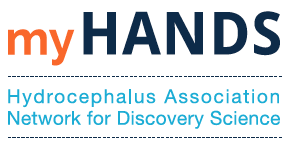Meet Our 2023 Innovator Award Recipients
Tim Cherry, PhD
Assistant Professor, University of Washington
The MicroMRNA, MIR9 as a Network Regulator in Hydrocephalus
Dr. Cherry aims to investigate the role of miR9, a novel candidate risk factor, in hydrocephalus. Successful completion of this proposal has the potential to identify new genes to screen for genetic risk in hydrocephalus. Furthermore, identification of pathways regulated by miR9 could represent novel therapeutic targets and this novel model would be one system in which these therapeutics could be tested.
Maria Lehtinen, PhD
 Professor, Boston Children’s Hospital
Professor, Boston Children’s Hospital
Cellular and Molecular Characterization of Human and Porcine Choroid Plexus to Study Post-Hemorrhagic Hydrocephalus (PHH)
Dr. Lehtinen understands that our knowledge of hydrocephalus development post-cerebral ventricular bleeding remains limited. Her works aims to address two key knowledge gaps in current hydrocephalus research and provide a translational framework for future studies: (1) establishing a resource for the entire field to assess the translational potential of choroid plexus-targeted interventions between rodent, pig, and human and (2) identifying key molecular mechanisms associated with progression of hydrocephalus following hemorrhage.
Mercedeh  Movassagh, PhD
Movassagh, PhD
Associate Research Scientist, Yale University
Improving Neonatal Hydrocephalus Diagnosis, Treatment, and Prevention Through Metagenomics and Genetic Characterization in Ugandan Cohorts
The goal of Dr. Movassagh’s research is to clarify the infant hydrocephalus infectious and genetic etiology in high-risk countries like Uganda. These data will allow for an improved assessment of risk of hydrocephalus among the diverse people of a country such as Uganda, leading to improved future efforts of hydrocephalus prevention and treatment.
Ronald Parchem, PhD
Assistant Professor, Baylor College of Medicine
MicroRNA Regulation of Neural Fate Specification in Congenital Hydrocephalus
Dr. Parchem’s study will determine how defects in neuroepithelial fate specification lead to congenital hydrocephalus (CH). Using a novel CH mouse model, where only one (miR-302a) of four miR-302 family members are expressed, Dr. Parchem aims to investigate the role of miR-302 in neural tube development. His goal is to expand the field’s knowledge of the miR-302 regulatory pathway during neural development and increase our understanding of the multi-genic cause of CH in order to develop novel therapeutic strategies.
Andreas Rauschecker, MD, PhD
Assistant Professor, University of California , San Francisco
Automated Volumetric Measurements for Early Diagnosis and Identification of Fetal Hydrocephalus Requiring Intervention
Dr. Rauschecker aims to improve the diagnosis and management of fetal hydrocephalus by distinguishing hydrocephalus from other causes of fetal ventriculomegaly through a more accurate and rapid way to measure fetal ventricular volume. This could lead to earlier diagnosis and treatment of hydrocephalus, which could improve significantly impact the treatment of fetuses with ventriculomegaly. Additionally, this research could help to identify fetuses at risk for developing post-natal hydrocephalus (e.g. due to aqueductal stenosis), which could allow for early intervention and prevention of complications, such as cognitive sequelae.
Jennifer Strahle, PhD
Associate Professor, Washington University in St. Louis
Amniotic Fluid and CSF Factors Responsible for Hydrocephalus and Altered Brain Development in Myelomeningocele
Dr. Strahle aims to understand how cerebrospinal fluid and amniotic fluid interactions alter brain development and result in hydrocephalus. Eighty percent of children born with Myelomeningocele require treatment for hydrocephalus. While fetal surgery decreases the rate of hydrocephalus in a select population, a significant number still require treatment. Understanding these interactions will allow for targeted treatments, either at time of in utero repair or through amniotic fluid injection, to normalize brain development and prevent hydrocephalus.
Johnathan R. Sukovich, PhD
Assistant Research Scientist, University of Michigan
Histotripsy for the Treatment of Hydrocephalus
Dr. Sukovich’s research has the potential to develop histotripsy as the first incisionless, noninvasive management strategy for the treatment of hydrocephalus. This development has the capability of impacting thousands of patients who suffer from hydrocephalus. This would improve patient safety by minimizing the risks associated with invasive procedures. Additionally this could simplify operational complexities for neurosurgeons by providing a unified interface for performing a range of different neurosurgical procedures including third ventriculostomies, lateral ventricular septostomies, and breaking up shunt blockages.

